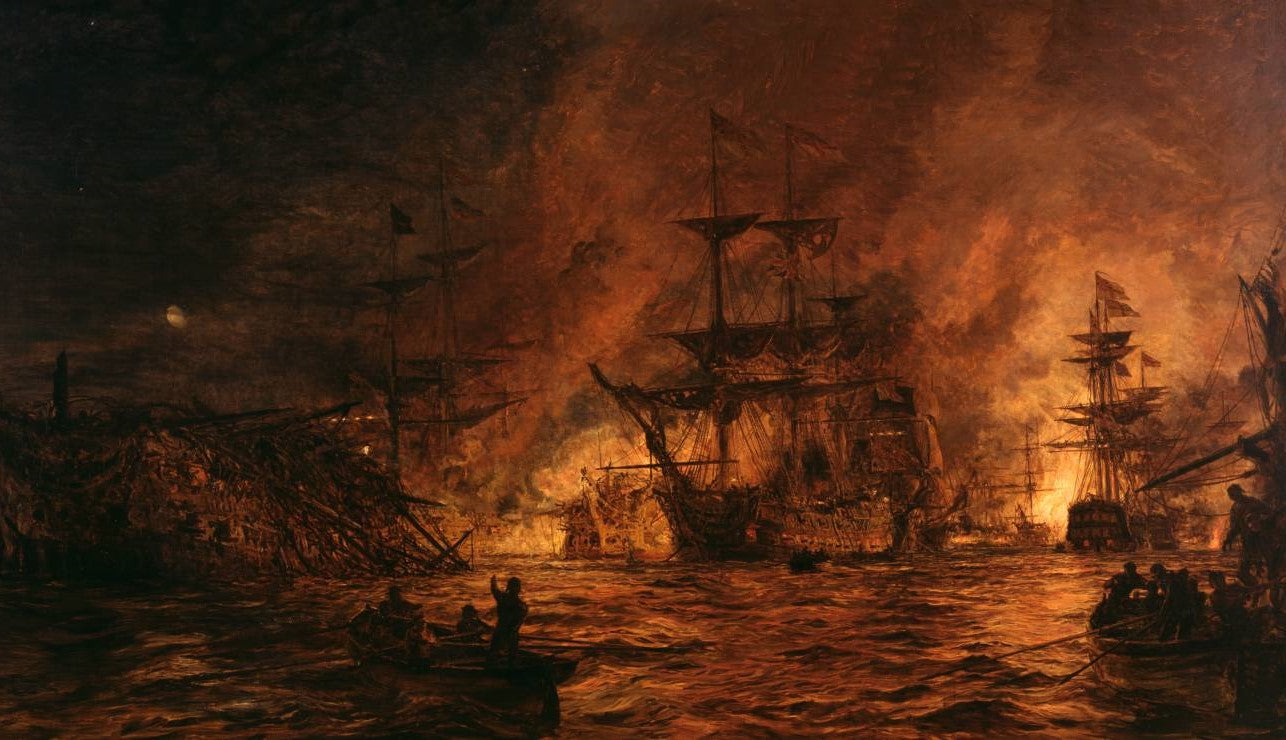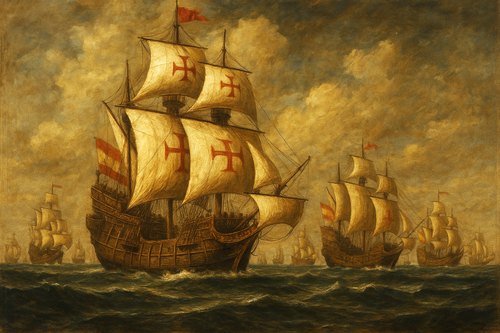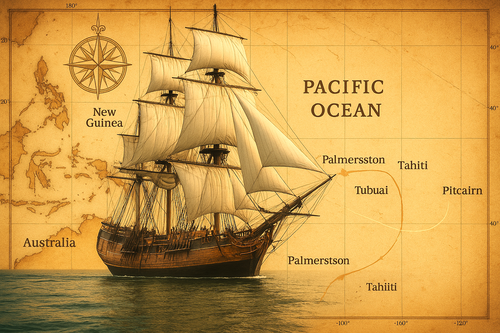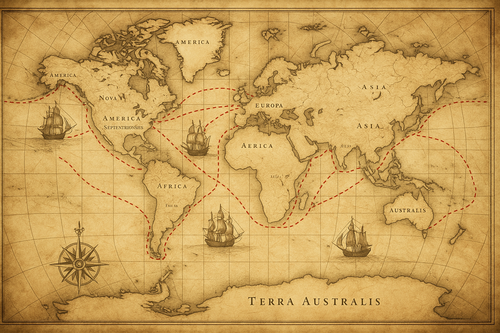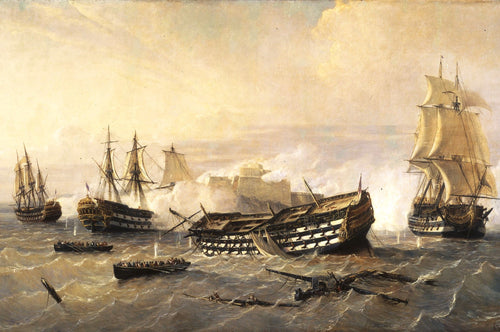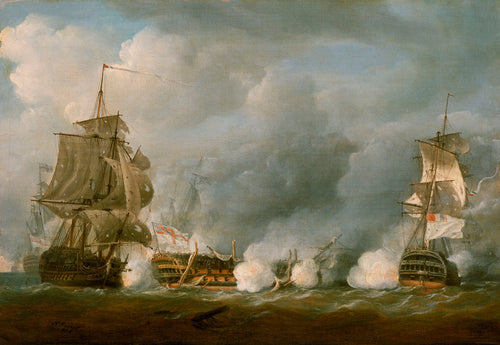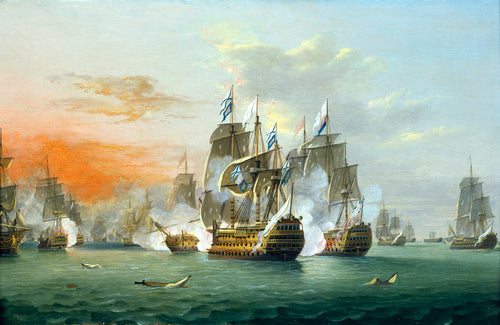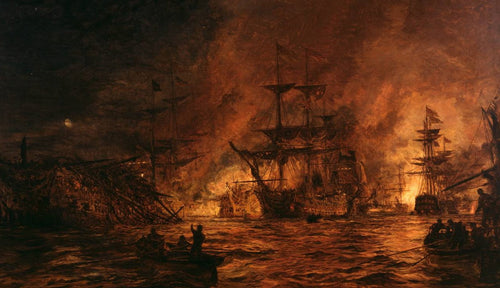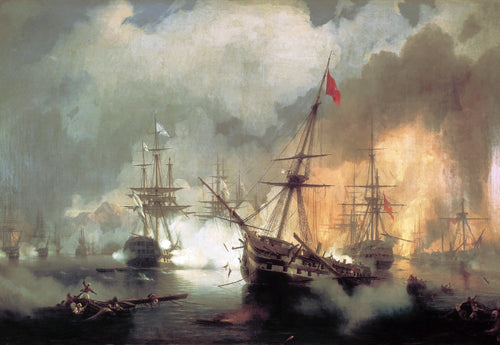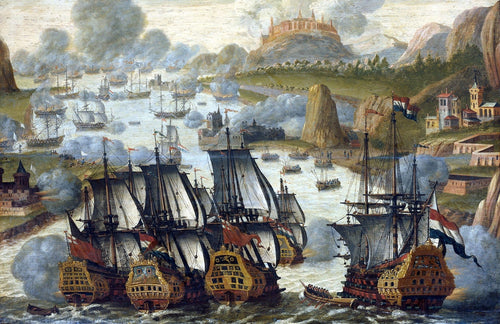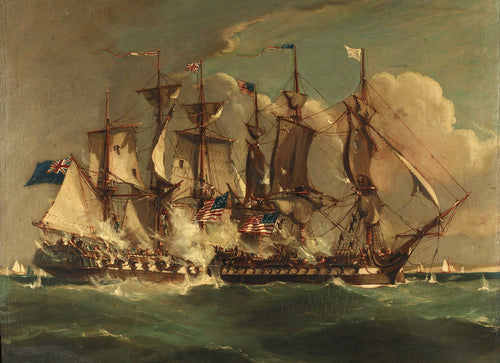The Battle of the Nile, also known as the Battle of Aboukir Bay, was a naval battle fought on August 1-2, 1798, during the French Revolutionary Wars. It was a pivotal moment in the conflict between France and Britain, and it had far-reaching consequences for the balance of power in Europe and the world. In this blog post, we will examine the key players, events, and outcomes of the Battle of the Nile.
Background:
In 1798, Napoleon Bonaparte set out on a grand expedition to Egypt, with the aim of cutting off Britain's trade routes to India and establishing French influence in the Middle East. His fleet of ships was escorted by a powerful naval force under the command of Vice-Admiral François-Paul Brueys d'Aigalliers. The French fleet comprised 13 ships of the line, 4 frigates, and 50 transport ships, carrying a total of 35,000 soldiers and sailors.
However, the British were aware of Napoleon's plans and sent a fleet of 14 ships of the line, under the command of Admiral Horatio Nelson, to intercept the French fleet. The British fleet was smaller than the French fleet, with only 1,000 sailors and 14 ships of the line, but it was more experienced and better equipped.
(Destruction of "L'Orient" at the Battle of the Nile, 1 August 1798. Painted by George Arnald (1763–1841) - Buy Print
The Battle:
On August 1, 1798, the British fleet caught up with the French fleet in Aboukir Bay, near the mouth of the Nile River. Nelson ordered his ships to attack in two columns, aiming to break the French line of battle and cut off their escape route.
The battle was fierce and lasted throughout the night. The French ships fought bravely, but they were outmatched by the British ships. Several French ships were disabled or captured, including the flagship L'Orient, which exploded and sank, killing most of its crew. By the morning of August 2, the French fleet was in disarray and many of their ships were on fire.
(Painting by Mather Brown (1761–1831) - Buy Print
Outcome:
The Battle of the Nile was a resounding victory for the British, with only two of their ships being severely damaged. The French suffered heavy losses, with 11 of their ships either captured or destroyed, and over 6,000 soldiers and sailors killed, wounded, or captured. The victory at the Battle of the Nile effectively ended Napoleon's ambitions in Egypt and the Middle East.
The Battle of the Nile also had wider geopolitical consequences. It secured Britain's control of the Mediterranean and enabled it to maintain its trade routes to India. It also weakened French power in the region and paved the way for the eventual defeat of Napoleon's army in Egypt. The battle also established Nelson's reputation as a brilliant naval strategist and cemented his place in British history.
This battle was a pivotal moment in the history of Europe and the world. It was a decisive victory for the British and a major setback for Napoleon's ambitions in the Middle East. The battle demonstrated the importance of naval power in the age of empires and cemented Britain's status as a global superpower. The legacy of the Battle of the Nile is still felt today, as it was a key moment in the shaping of the modern world.
